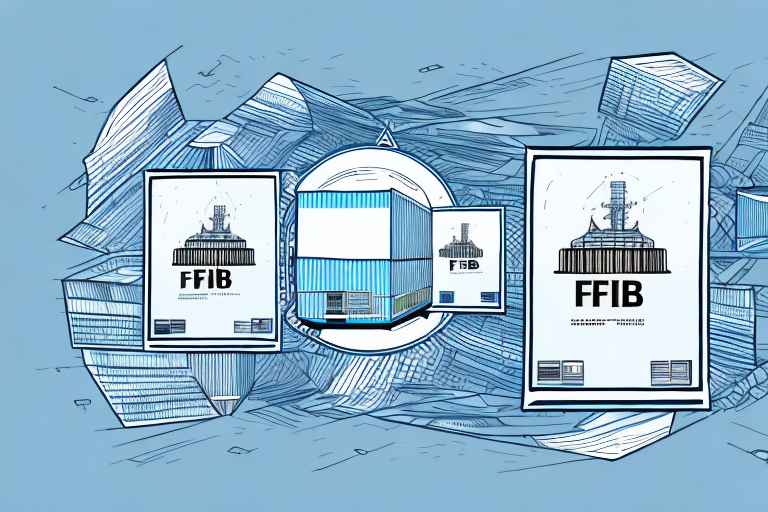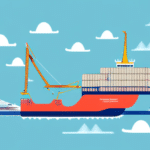Who Pays for FOB Shipping Point?
If you're involved in the shipment of goods, understanding the term 'FOB Shipping Point' is crucial. This article delves into the intricacies of FOB Shipping Point, contrasts it with FOB Destination, and explores the implications for freight costs. We'll also provide guidance on determining payment responsibilities, negotiating freight costs, legal considerations, common pitfalls, and strategies to optimize your supply chain. Additionally, we'll look ahead to the future of FOB Shipping Point in a dynamic industry.
Understanding FOB Shipping Point
What is FOB Shipping Point?
FOB stands for "Free on Board," a shipping term used in contracts to indicate when ownership and responsibility for goods transfer from the seller to the buyer. FOB Shipping Point means that as soon as the goods leave the seller's location, the buyer assumes ownership and is responsible for any loss or damage during transit.
FOB Shipping Point vs. FOB Destination
The primary difference between FOB Shipping Point and FOB Destination lies in the transfer of ownership and responsibility. While FOB Shipping Point transfers responsibility to the buyer once the goods are shipped, FOB Destination keeps the responsibility with the seller until the goods reach the buyer's location.
- FOB Shipping Point: Buyer responsible during transit.
- FOB Destination: Seller responsible until delivery.
Choosing between these terms affects risk management, cost allocation, and logistical planning.
Importance of FOB Shipping Point for Businesses
Risk and Responsibility
FOB Shipping Point determines who bears the risk during transportation. For sellers, it reduces liability once goods are shipped. Buyers, however, must ensure proper insurance and handling to mitigate risks.
Pricing Strategy
Businesses can leverage FOB terms to influence pricing. Sellers might offer lower prices under FOB Shipping Point to offset the buyer's additional responsibilities, while buyers might factor in the cost of transportation when negotiating prices.
Inventory Management
The FOB term affects inventory accounting. Under FOB Shipping Point, inventory ownership transfers when shipped, impacting stock levels and financial statements.
The Role of Freight Costs in FOB Shipping Point
Freight costs are a significant consideration in FOB Shipping Point agreements. Typically, the buyer handles these costs, but negotiations can alter this dynamic. Factors influencing freight costs include:
- Distance between buyer and seller
- Mode of transportation (e.g., air, sea, land)
- Size and weight of the shipment
- Current market rates for shipping services
Understanding these factors helps businesses negotiate favorable terms and manage expenses effectively.
Negotiating Freight Costs
Factors Influencing Negotiations
Effective negotiation of freight costs requires considering several elements:
- Volume of Shipments: Higher volumes can lead to discounts.
- Shipping Frequency: Regular shipments may secure better rates.
- Carrier Relationships: Established partnerships can provide leverage.
- Market Conditions: Staying informed about industry trends aids in negotiations.
Strategies for Negotiation
Businesses can adopt the following strategies to negotiate freight costs:
- Compare rates from multiple carriers.
- Leverage bulk shipping discounts.
- Negotiate flexible terms based on shipment variability.
- Consider long-term contracts for better pricing.
Staying informed and prepared enhances the ability to secure cost-effective freight solutions.
Legal Considerations for FOB Shipping Point Agreements
FOB Shipping Point agreements must be meticulously drafted to ensure legal enforceability. Key legal considerations include:
- Clarity in Terms: Define the shipping point, responsibilities, and obligations explicitly.
- Jurisdiction: Understand how different jurisdictions interpret FOB terms, as legal implications can vary.
- Compliance with Regulations: Ensure adherence to international trade laws and standards.
- Insurance Requirements: Specify insurance coverage responsibilities to protect against transit risks.
Consulting with legal professionals familiar with shipping and trade law is advisable to draft robust FOB agreements.
For more detailed legal insights, refer to resources like the Lexology legal platform.
Common Mistakes to Avoid with FOB Shipping Point
- Misunderstanding Responsibility: Failing to recognize when liability transfers can lead to unexpected losses.
- Poor Documentation: Inadequate contract details may result in disputes.
- Insufficient Insurance: Not securing appropriate insurance can increase financial risks.
- Ignoring Carrier Reliability: Choosing unreliable carriers can compromise shipment safety and timeliness.
Awareness and proactive management of these common mistakes can safeguard your business interests.
Benefits and Drawbacks of Using FOB Shipping Point
Advantages
- Reduced Seller Liability: Sellers are not responsible for goods once shipped.
- Potential Cost Savings: Buyers may negotiate better shipping rates independently.
- Inventory Management: Clear ownership transfer aids in accurate inventory tracking.
Disadvantages
- Increased Buyer Risk: Buyers bear the risk of loss or damage during transit.
- Logistical Responsibilities: Buyers must manage shipping logistics and carrier relationships.
- Potential for Higher Costs: Buyers may incur higher freight costs if not negotiated effectively.
Weighing these pros and cons helps businesses decide if FOB Shipping Point aligns with their operational strategies.
Optimizing Your Supply Chain with FOB Shipping Point
Cost Management
Utilizing FOB Shipping Point can lead to cost efficiencies by allowing buyers to negotiate transportation rates directly, potentially reducing overall shipping expenses.
Enhanced Control
Buyers gain greater control over the shipping process, including carrier selection and shipping schedules, leading to improved delivery performance and customer satisfaction.
Collaborative Planning
Working closely with suppliers to plan shipments can optimize logistics, minimize delays, and streamline inventory management.
Implementing supply chain optimization techniques, such as just-in-time inventory and advanced forecasting, can further enhance the benefits of FOB Shipping Point.
The Future of FOB Shipping Point in an Evolving Industry
As the logistics and shipping industries advance, the relevance and application of FOB Shipping Point continue to evolve. Emerging trends include:
- Technological Integration: Enhanced tracking systems and blockchain technology improve transparency and security in the shipping process.
- Sustainability Practices: Eco-friendly shipping methods may influence FOB agreements as businesses prioritize sustainability.
- Global Trade Dynamics: Changes in international trade policies and tariffs can impact FOB Shipping Point negotiations and responsibilities.
Staying adaptable and informed about these trends ensures that businesses can effectively utilize FOB Shipping Point in a changing marketplace.
For insights into future shipping trends, refer to reports by the World Trading Report.
Conclusion
FOB Shipping Point is a pivotal concept in the realm of shipping and logistics, delineating the transfer of ownership and responsibility between sellers and buyers. By comprehensively understanding its implications, negotiating favorable terms, and avoiding common pitfalls, businesses can optimize their supply chains and manage risks effectively. As the industry continues to evolve, staying informed about emerging trends and adapting FOB Shipping Point strategies will be essential for sustained success.






















